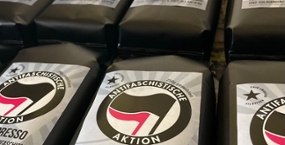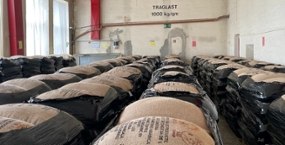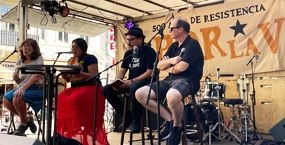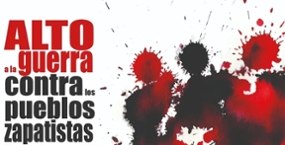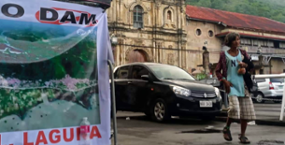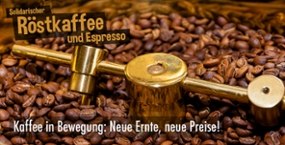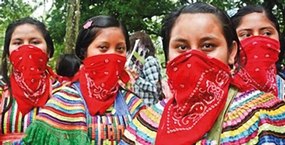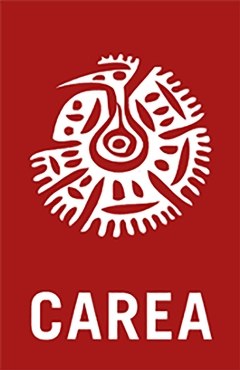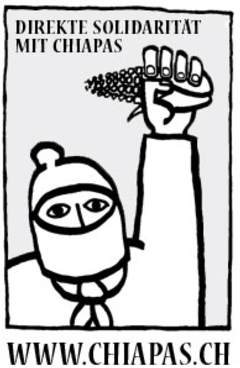Collectively and cooperatively
How we are working
Para todos todo, nada para nosotros*
Café Libertad Kollektiv - a cooperative collective enterprise
Due to legal requirements, cooperatives are more complex than other legal structures. However, they have the merit of realising a form of socialisation and self-management beyond private ownership. In other words: Café Libertad Kollektiv isn't 'owned' by anyone, including the cooperative's shareholders or team members. The revenue isn't privatised or distributed as profit. We are supporting the autonomy of Zapatista and indigenous communities and promoting the idea of solidary trade and self-organised work.
An annual assembly of all cooperative members is legally required to present financial statements and to elect and formally approve of the coop's institutions. This assembly is the coop's highest decision-making body and is taking place according to cooperative law.
Our team structures
Our work is organised non-hierarchically, decisions are made on a consensual basis at weekly team meetings, which are not being paid. Additionally, there are daily half-hour-long work meetings if required which are paid. Once or twice a year, general questions are discussed at all-day meetings. Regular counselling is organised to prevent potential conflicts at an early stage which have caused quarrel and even separation of the collective in the past.
Wage labour for import and distribution (order processing, packaging, processing of import transactions with coffee cooperatives, roasting, accounting etc.) is being paid a gross standard wage per hour. Work on special projects with a high work intensity due to training or internship is sometimes paid less, subject to free agreement and not less than minimum wage. Political activity - which is an indispensable part of our work - like solidarity campaigns or coffee stalls, team meetings or work in the cooperative's boards are generally voluntary and unsalaried.
Transparency by general communication of operative procedures and figures
Theoretically, all team members are supposed to work in every sector in order to prevent hierarchy at work. In real life, this can't be applied to all situations. Some colleagues can't work in the packaging sector due to physical limitations, other work fields require special knowledge like foreign languages, accounting or technical skills.
Generally, we strive to achieve maximum transparency and communication of procedures, e.g. via in-house training in different work sectors. Financial status quo and operating figures are presented regularly at team meetings. In our opinion, this is a crucial point in preventing hierarchies due to special knowledge in the important field of finance and in enabling all team members to participate in planning and controlling. At the same time, our focus is not exclusively on economic considerations, but we also strive to discuss and question decisions from a political perspective.
Contradictions and realities: With questions, we are moving forward!
The project Café Libertad Kollektiv has its origins in the anarcho-syndicalist union movement. The original ideas include support of resistant cooperatives and social movements as well as the creation of jobs characterised by working conditions we are fighting for politically and on a societal level in order to prevent self-exploitation and precarisation. Reality check constantly generates new problems which we are questioning critically.
The packaging sector of Café Libertad Kollektiv, in particular, is characterised by physically demanding labour. Sick days have to be compensated, additional orders have to be processed. On a long-term basis, work in this sector for several days per week has turned out not to be feasible, because health problems tend to increase with work intensity. Therefore, work in the packaging sector is limited to 2 days per week. Due to an increasing amount of work, the additional employment of temporary staff has been increasing in recent years.
Standard wage and equal conditions
Temporary personnel in collective enterprises sounds peculiar but is a reality in most collectives to be able to manage the workload. We don't want to gloss over this fact but to discuss it openly and consciously. Different personal situations have to be considered and the realisation of not-so-conventional plans for the future should be possible. Students tend to have different concerns, points of focus and living conditions than free-lancers or artists looking for auxiliary income or people actually interested in a full-time job.
If possible, temps are employed on a permanent basis and subject to full social insurance. They are entitled to equal wages, holidays and educational leave. We strive to realise regular working days for temporary staff according to their wishes, needs and living situations to prevent precarisation or covert outsourcing of collective work into de-regulated employment relationships.
Right now, we are developing models of self-management and participation for employees outside full collective membership, e.g. general assemblies of all colleagues.
Currently, there are 14 employees at Café Libertad Kollektiv, 9 are members of the collective. Working hours vary from 6 hours (regular hours per day) to 30 hours per week (full-time). Whenever possible, working hours are based on the employees' needs and wishes.
Temporary staff are employed 1-2 days per week. Members of the collective are supposed to work 3-5 days per week, in order to facilitate deeper understanding and active participation in every-day operative developments.
*For everyone, everything. For ourselves, nothing.
From a mural illustrating the concept of Zapatista communities' management structures. Drawn on the following quote of Subcomandante Marcos: "Para todos todo. Para nosotros el dolor y la angustia, para nosotros la alegre rebeldía, para nosotros el futuro negado, para nosotros la dignidad insurrecta. Para nosotros nada."

